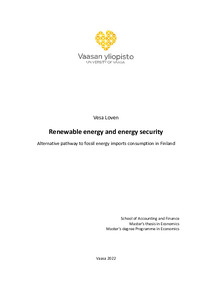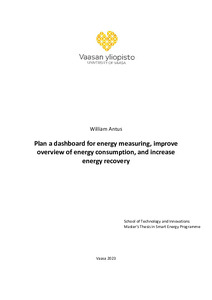Monopolistic and game-based approaches to transact energy flexibility
Gazafroudi, Amin Shokri; Shafie-khah, Miadreza; Prieto-Castrillo, Francisco; Corchado, Juan Manuel; Catalão, João P. S. (2019-09-27)
Gazafroudi, Amin Shokri
Shafie-khah, Miadreza
Prieto-Castrillo, Francisco
Corchado, Juan Manuel
Catalão, João P. S.
IEEE
27.09.2019
Julkaisun pysyvä osoite on
https://urn.fi/URN:NBN:fi-fe2020040210217
https://urn.fi/URN:NBN:fi-fe2020040210217
Kuvaus
vertaisarvioitu
©2020 IEEE. Personal use of this material is permitted. Permission from IEEE must be obtained for all other uses, in any current or future media, including reprinting/republishing this material for advertising or promotional purposes, creating new collective works, for resale or redistribution to servers or lists, or reuse of any copyrighted component of this work in other works.
©2020 IEEE. Personal use of this material is permitted. Permission from IEEE must be obtained for all other uses, in any current or future media, including reprinting/republishing this material for advertising or promotional purposes, creating new collective works, for resale or redistribution to servers or lists, or reuse of any copyrighted component of this work in other works.
Tiivistelmä
The appearance of the flexible behavior of end-users based on demand response programs makes the power distribution grids more active. Thus, electricity market participants in the bottom layer of the power system, wish to be involved in the decision-making process related to local energy management problems, increasing the efficiency of the energy trade in distribution networks. This paper proposes monopolistic and game-based approaches for the management of energy flexibility through end-users, aggregators, and the Distribution System Operator (DSO) which are defined as agents in the power distribution system. Besides, a 33-bus distribution network is considered to evaluate the performance of our proposed approaches for energy flexibility management model based on impact of flexibility behaviors of end-users and aggregators in the distribution network. According to the simulation results, it is concluded that although the monopolistic approach could be profitable for all agents in the distribution network, the game-based approach is not profitable for end-users.
Kokoelmat
- Artikkelit [2597]
Samankaltainen aineisto
Näytetään aineisto, joilla on samankaltaisia nimekkeitä, tekijöitä tai asiasanoja.
-
Renewable energy and energy security : Alternative pathway to fossil energy imports consumption in Finland
Loven, Vesa (11.05.2022)
Pro gradu -tutkielmaRenewable energy sources (RES) have an essential role in substituting traditional fossil fuels, oil, natural gas, and coal. Besides being considered a desirable target from the environmental conservation point of view, ... -
Stochastic network-constrained co-optimization of energy and reserve products in renewable energy integrated power and gas networks with energy storage system
Mirzaei, Mohammad Amin; Yazdankhah, Ahmad Sadeghi; Mohammadi-ivatloo, Behnam; Marzband, Mousa; Shafie-khah, Miadreza; Catalão, João P. S. (Elsevier, 20.06.2019)
articleIncreasing penetration of variable nature wind energy sources (WES) due to environmental issues, impose several technical challenges to power system operation as it is difficult to predict its output power because of wind ... -
Plan a dashboard for energy measuring, improve overview of energy consumption, and increase energy recovery
Antus, William (27.04.2023)
DiplomityöThis thesis is written on behalf of a manufacturing company, focusing on energy consumption, recovery, and management. The energy sector continuously changes through carbon emission targets and laws demanding action from ...



